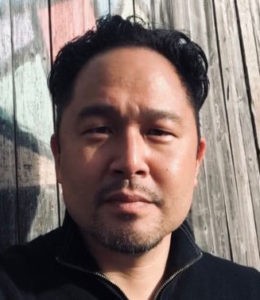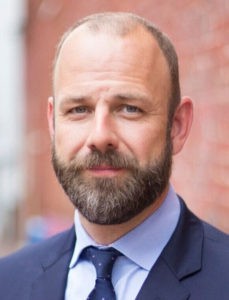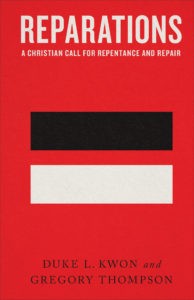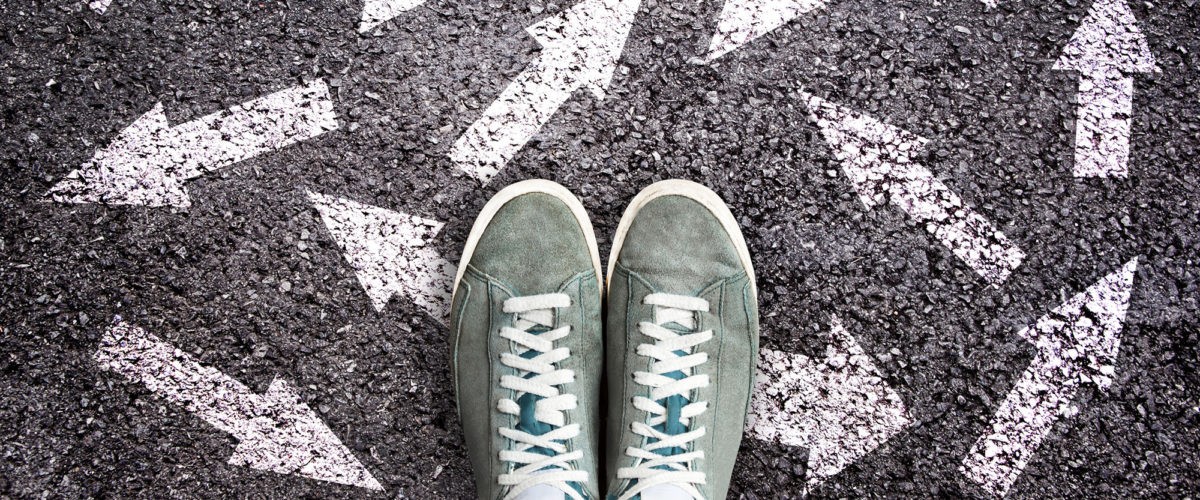We have encountered many people struggling to answer this call, laboring daily to see the truth about American racism and the way it shapes both our individual and common lives. This is not true of everyone, of course.
In every community, some are deeply resistant to seeing the truth about American racism and resistant to the vulnerability that this seeing entails. Even so, all across the United States — in churches in Memphis, college campuses in Georgia, auditoriums in Pennsylvania, dinner tables in Washington, D.C., and cocktail bars in Charlottesville — we have encountered people who want both to see the truth about American racism and to respond redemptively.

Duke Kwon

Gregory Thompson
Over time, however, we have noticed that while many people are concerned with racism in America and are committed to engaging it, few have thought deeply about the role of reparations. While many Americans see the reality of racism, they see it in ways that — while substantively true and ethically important — are not yet robust enough to lead to the work of reparations.
Many of us need a different way of seeing race in America, one that makes reparations not only plausible but inevitable.
In 2016, African American social commentator Heather McGhee was a guest on C-SPAN’s Washington Journal. McGhee, then president of Demos, a “think-and-do” tank that focuses on equitable democratic reform, was invited to discuss the role of progressive politics in the 2016 presidential election, then under way.
During the call-in portion of the show, a white man from North Carolina spoke to McGhee with unusual candor about his own racism. Introducing himself, he simply said, “I’m a white male and I am prejudiced.” Given our cultural moment, upon hearing these words one might have expected either for this man to launch a fleet of justifications for his racism or for McGhee to shame him for it. However, neither did so.
“What can I do to change, you know, to be a better American?”
For his part, the man began simply to talk about his fears. For her part, rather than rolling her eyes or turning away, McGhee looked directly into the camera and gave this man her full attention. As she did so, he said something almost wholly unexpected: “What can I do to change, you know, to be a better American?”
Upon hearing these words, she closed her eyes, gathered herself in kindness, and spoke directly to the camera:
Thank you, so much, for being honest, and for opening up this conversation because it’s simply one of the most important ones we have to have in this country. You know, we are not a country that is united because we are all one racial group that descended from one tribe and one community. That is actually, I think, what makes this country beautiful, but it is our challenge. We are the most multi-racial, multi-ethnic, wealthy democracy in the world. And so, asking the question you asked, “How do I get over my fears and my prejudices?” is the question that all of us — and I will say people of all races and ethnicities and backgrounds hold these fears and prejudices. Most of them are actually unconscious, right? You’ll say to yourself, “I’m not prejudiced” but of course we all have them. And so your ability to just say, “This is what I have, I have these fears and prejudices and I want to get over them” is one of the most powerful things that we can do right now at this moment in our history. So thank you.
In the following days a video of the exchange began to show up on Facebook pages, Twitter feeds and other media outlets. Some viewers responded with contempt for the man, the ignorant Southern racist who had the gall to ask an African American woman to help him with his racism. Others responded with criticism of McGhee, accusing her of coddling a fragile white man who should have been confronted instead.
But many responded with something like gratitude — thanking both of them for showing us something we rarely see — the willingness to have a painful conversation with both honesty and mutual care.
“Embedded in this man’s question is a particular way of seeing American racism.”
Embedded in this man’s question is a particular way of seeing American racism. Specifically, seeing racism as a form of personal prejudice, as a disposition of the heart and mind. In this view, racism is largely understood as a set of individual perspectives, attitudes and biases that shape how we value — or devalue — human beings. As McGhee noted, one of the common humiliations of our inheritance is that each of us bears prejudicial judgments against other people because of the color of their skin and the cultural heritage this color suggests.
But if racism is a heart issue, then what must we do to address it? Throughout American history, the answer to this question has been relatively straightforward: Change the heart. Throughout the 18th and 19th centuries, anti-racist activists and abolitionists developed strategies aimed at just this sort of change. Through tracts, multiracial speaking tours and other literature, they sought to reshape the racist heart of Americans. During the early 20th century, the writers and artists of the Harlem Renaissance continued this work by creating works designed to confront the racist blindness of white America and to help America, in the words of Langston Hughes, “see how beautiful I am and be ashamed.”
In our own time, this work of dispositional change continues in families, churches and schools. In each of these initiatives, across the centuries, the goal has in many respects been the same — to weaken the malignant power of American racism by transforming the dispositions of the heart and mind.
“In the Christian tradition, the language for this deep internal change is personal repentance.”
In the Christian tradition, the language for this deep internal change is personal repentance, a sacred dimension of the Christian vision of the moral life. We have seen many Christians — including ourselves — take up this work of repentance with respect to racism. And rightly so.
In the Christian tradition, personal prejudice is a form of violence that harms the other by denying their God-given dignity. Seeing these prejudicial dispositions in the heart, the Christian begins the long, renunciative work of uprooting them from the heart and rebuilding new dispositions in their place.
This is essential work, and we ourselves are deeply committed to it. Even so, this particular way of seeing racism as a personal prejudice that chiefly requires the work of personal repentance is not the complete picture.
 Duke L. Kwon serves as lead pastor at Grace Meridian Hill, a neighborhood congregation in Washington, D.C. He is active in public conversations around race, equity and racial repair in the American church, and he lectures on these topics around the country. He earned both master of divinity and master of theology degrees from Gordon-Conwell Theological Seminary. Gregory Thompson serves as executive director of Voices Underground, an initiative to build a national memorial to the Underground Railroad outside of Philadelphia, as research fellow in African American heritage at Lincoln University, and visiting theologian for mission at Grace Mosaic Church in Washington, D.C. He also is the cocreator of Union: The Musical, a soul and hip-hop-based musical about the 1968 sanitation workers’ strike. He earned Ph.D. from the University of Virginia. This column is excerpted from their new book, Reparations. Content ©2021 and used by permission of Baker Publishing.
Duke L. Kwon serves as lead pastor at Grace Meridian Hill, a neighborhood congregation in Washington, D.C. He is active in public conversations around race, equity and racial repair in the American church, and he lectures on these topics around the country. He earned both master of divinity and master of theology degrees from Gordon-Conwell Theological Seminary. Gregory Thompson serves as executive director of Voices Underground, an initiative to build a national memorial to the Underground Railroad outside of Philadelphia, as research fellow in African American heritage at Lincoln University, and visiting theologian for mission at Grace Mosaic Church in Washington, D.C. He also is the cocreator of Union: The Musical, a soul and hip-hop-based musical about the 1968 sanitation workers’ strike. He earned Ph.D. from the University of Virginia. This column is excerpted from their new book, Reparations. Content ©2021 and used by permission of Baker Publishing.


